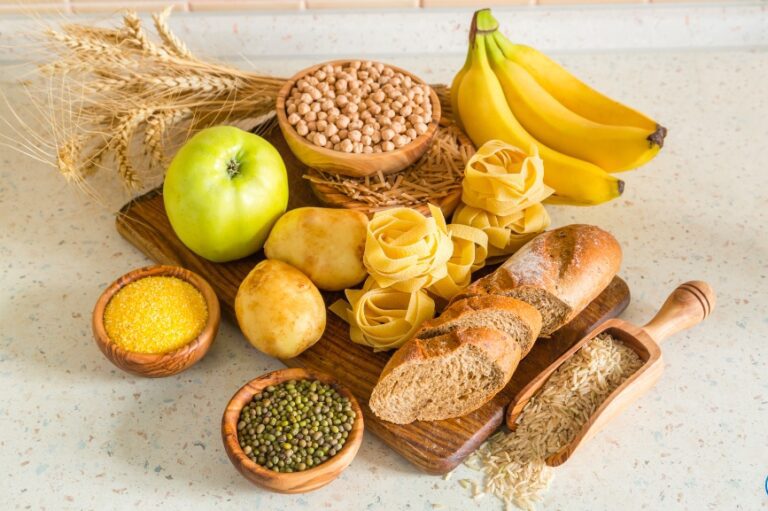
Managing Type II Diabetes Through Diet: A Comprehensive Guide
Type II diabetes is a prevalent condition affecting millions globally, influencing how the body processes blood sugar. Unlike other medical conditions, the power to manage Type II diabetes often rests in one’s hands, particularly through diet. In this guide, we’ll explore how thoughtful dietary choices can not only manage but significantly improve health outcomes for those living with diabetes.
Article Highlights:
ToggleUnderstanding Carbohydrates


Carbohydrates are the body’s primary energy source but can cause havoc for individuals with diabetes if not properly managed. Carbs are categorized into simple (quickly digested) and complex (slowly digested), impacting blood sugar levels differently. For someone with diabetes, prioritizing complex carbohydrates like whole grains, legumes, and vegetables is crucial. These foods slow down glucose absorption, preventing spikes in blood sugar levels.
The Role of Fiber in Diabetes Control


Fiber is a powerhouse in diabetes management. It delays the digestion of carbohydrates, helping maintain more consistent blood sugar levels. Foods rich in fiber such as berries, leafy greens, nuts, and whole grains not only help control blood sugar but also contribute to a fuller feeling after meals, aiding in weight management—an important aspect of diabetes care.
Importance of Quality Fats
Not all fats are villains in the story of diabetes. In fact, healthy fats are heroes, especially monounsaturated and polyunsaturated fats found in avocados, nuts, seeds, and olive oil. These fats help improve blood cholesterol levels and maintain cell health, essential for managing diabetes. Including these in your diet can improve heart health and enhance overall well-being.
Protein's Place in a Diabetic Diet
Protein is essential for blood sugar control because it stabilizes glucose levels and curbs hunger. Incorporating lean protein sources such as grilled chicken, fish, tofu, and legumes can prevent the peaks and troughs in blood sugar that are harmful to diabetics. Plus, protein-rich foods make meals more satisfying, which can help maintain a healthy weight.


Managing Meal Timing and Portion Control
Eating at regular intervals throughout the day can prevent sudden spikes or drops in blood sugar levels. Portion control is equally important, as consuming too much of even the healthiest food can lead to weight gain and increased blood sugar. Using smaller plates, checking serving sizes, and being mindful of hunger cues are simple strategies that can have a big impact on diabetes management.
Reducing Sugars and Refined Foods
Eating at regular intervals throughout the day can prevent sudden spikes or drops in blood sugar levels. Portion control is equally important, as consuming too much of even the healthiest food can lead to weight gain and increased blood sugar. Using smaller plates, checking serving sizes, and being mindful of hunger cues are simple strategies that can have a big impact on diabetes management.


Alcohol Consumption and Diabetes
Alcohol can interfere with your diabetes medication and insulin, leading to either high or dangerously low blood sugar levels. If you choose to drink, moderation is key, and it’s important to consider the timing of your drinks and their carbohydrate content. Consulting with a healthcare professional on how to include alcohol safely in your diet is a wise step.
Putting It All Together: A Sample Diet Plan


- Monday: Breakfast – Oatmeal with fresh berries. Lunch – Grilled chicken salad with a variety of greens. Dinner – Stir-fried tofu with vegetables.
- Tuesday: Breakfast – Greek yogurt with nuts and seeds. Lunch – Lentil soup. Dinner – Baked salmon with quinoa and steamed broccoli.
- Wednesday: Breakfast – Smoothie with spinach, protein powder, and a small banana. Lunch – Turkey wrap with whole grain tortilla and avocado. Dinner – Grilled vegetables and black bean burger.
This meal plan can be adjusted according to personal preferences and nutritional needs, keeping variety and balance in mind.
Conclusion
Adopting a diet that’s right for diabetes management isn’t just about restricting yourself—it’s about empowering yourself with the right choices. It involves understanding the effects of different foods on blood sugar levels and making informed decisions that help maintain optimal health.
Take control of your health by taking small, manageable steps towards a balanced diet. Remember, each meal is an opportunity to positively affect your health. Consulting with a dietitian can provide tailored advice and support, empowering you to manage your diabetes effectively.




